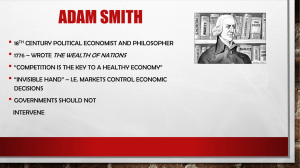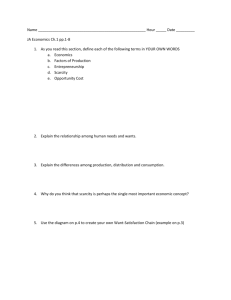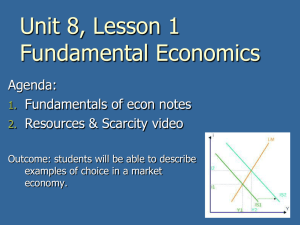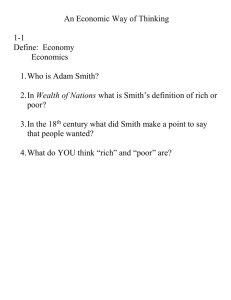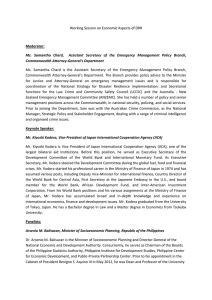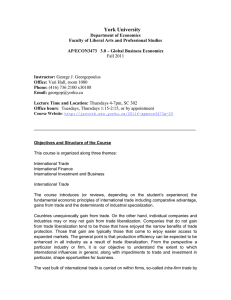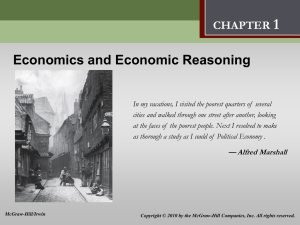Introduction to Economics
advertisement
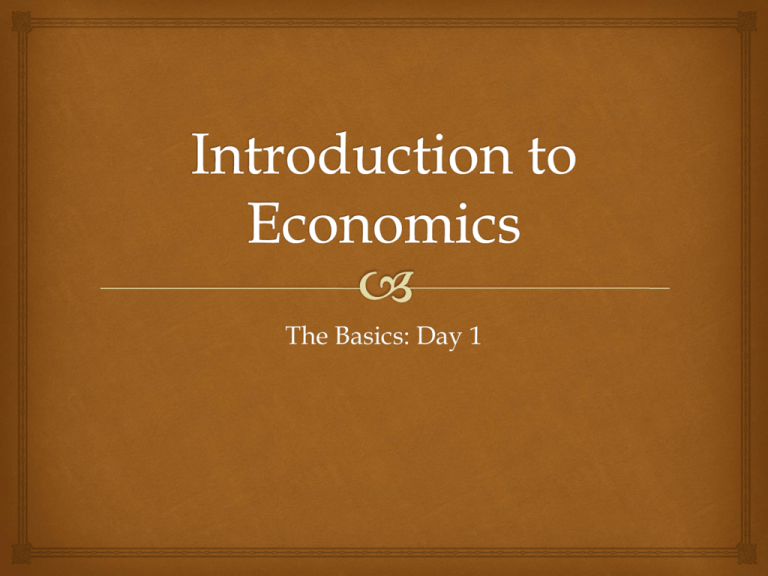
The Basics: Day 1 Warm Up Respond to each question. Provide a thorough explanation for each decision. If you could choose between two nearly identical products– one that is free and one that you have to pay for– which would you choose? Why? If you were opening a new business, would you select a location closer to or farther away from a business that sold similar or even identical product? Why? If you could make a small change in your daily routine that would save you time and money, would you make the change? Why or why not? Activity With a partner, evaluate the list of questions and statements . Underline/highlight five questions or statements from the list that you think have something to do with economics. When you are finished, you will share. With your partner, try to come up with a simple definition of what economics is. The Seven Principles of Economics What seven principals guide an economic way of thinking? Principle One Scarcity Forces Tradeoffs Principle, or No Free Lunch Principle Limited resources force people to make choices and face trade-offs when they choose. Scarcity The result of people having limited resources, but unlimited wants. Tradeoff The exchange of one benefit or advantage for another that is thought to be better. Principle Two Cost versus Benefits People choose something when the benefits of doing so outweigh the costs Cost What is spent in money, effort, or other sacrifices to get something. Benefits What is gained from something in terms of money, time, experience, or other improvements Principle Three Thinking at the Margin Many decisions involve choices about using or doing a little more or a little less of something rather than making a wholesale change. Margin The outer edge Marginal Cost What you give up to add one unit to an activity Marginal Benefit What you gain by adding one more unit Principle Four Incentives Matter People respond to incentives in generally predictable ways Incentive Something that motivates a person to take a particular course of action. Positive incentives Honor Roll, grades Negative incentives Fines, jail Principle Five Trade Makes People Better Off By focusing on what we do well and then trading with others, we will end up with more and better choices than by trying to do everything for ourselves. Principle Six Markets Coordinate Trade Free markets usually do better than anyone or anything else at coordinating exchanges between buyers and sellers Market Any arrangement that brings buyers and sellers together to do business with each other. Invisible Hand Adam Smith’s metaphor to explain how an individual’s pursuit of economic self-interest can promote the wellbeing of society as a whole. Principle Seven Future Consequences Count Decisions made today have consequences not only for today, but for the future The bad economist sees only what immediately strikes the eye; the good economist also looks beyond. The bad economist sees only the direct consequences of a proposed course; the good economist looks also at the longer and indirect consequences . . . The art of economics consists in looking not merely at the immediate but at the longer effects of any act or policy. —Henry Hazlitt, Economics in One Lesson, 1979 Law of Unintended Consequences The actions of people and governments always have effects that are not expected, or that are “unintended.” What is Economics About? What goods and services should be produced? Should the economy focus on being self-sufficient or concentrate on what it is good at? Should it devote resources to health and education or defense and policing? Should we devote more resources to housing? Should an economy use resources producing goods that are essentially useless - like 'free' toys in cereal packets, football sticker cards and so on? What is Economics About? How should goods and services be produced? Should the economy use a system that is labor intensive, thereby ensuring everyone who wants a job has one, or should we use more efficient methods of production that involve the use of machines, even if this means more pollution and fewer jobs? Should we devote more land to production and thus solve some problems of feeding the population at the expense of encroaching into areas of natural beauty? What is Economics About? Who should get the resources that the economy has produced? Should an economy be geared to providing goods and services to every person as equally as possible or should those who work hard get more? How do we distribute our resources? Exit Ticket What do you want learn more about economics this semester?
